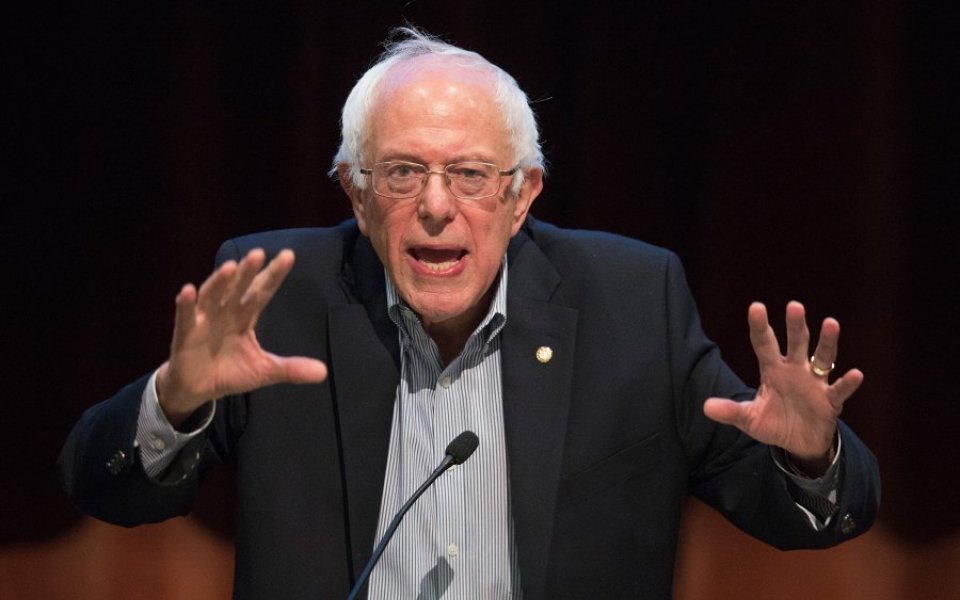Bernie Sanders: It’s not just the elite who should fear America’s leading socialist radical

Brothers Larry and Bernie Sanders claim to be very close. Bernie (who is running to be the Democratic nominee for the US presidency) told the Daily Telegraph last year that he learned many of his views from his older brother. But Larry isn’t some US political luminary. Back in May, running as a member of the Green Party, he failed in his bid to win the safely Conservative seat of Oxford West and Abingdon in the UK general election.
While Larry’s far-left doctrine was decisively rejected here in Britain, however, in the United States, senator Bernie Sanders is giving secretary Hillary Clinton a run for her money. Indeed, he can claim to be the most surprising candidate in this race so far.
For although Donald Trump’s comments continue to shock and awe an international audience, he is also picking up support among the most likely voters: Republicans and Democrats who are either young or blue collar workers – many of whom are unlikely to vote. Sanders, on the other hand, has managed to upset the entire Democratic nomination process. Now polling ahead of Clinton in the New Hampshire primary, and climbing up the polls for the Iowa caucus, he has propelled his candidacy forward on a socialist platform that has had almost no traction on a national level since the 1930s.
Sanders’s policies have trickled out of the left-wing state of Vermont, where he has spent almost 30 years involved in state politics. Though he has been a proclaimed independent – and ideological socialist – for much of his life, he joined the Democratic Party in 2015 to throw his hat into the presidential race.
His socialism does not directly reflect the ideology of Jeremy Corbyn and John McDonnell; in many ways, he is more radical still. Only a few days ago, he laid out his healthcare agenda. Viewing Obamacare as a stepping stone, rather than a bold piece of legislation, Sanders is proposing a single-payer health plan implemented on the federal level that expands the government health insurance programme, Medicare, to everyone. For Sanders, this new programme should not just be a safety net for those who don’t have health insurance; his plan would outlaw the sale of private health insurance entirely.
His spending plan is equally controversial, calling for higher taxes on both individuals and corporations that would amount to a roughly $18-19 trillion hike across the board.
Such ideas would not ordinarily resonate with American voters, but he has managed to combine socialist polices with a flair for “individualism” – the latter making him more palatable to a US audience. Rather than proclaiming that government is the solution to every problem, Sanders has tapped into the anger felt by both Republicans and Democrats towards the “establishment” and the “elite” (a similar tactic to that used by Trump), by attacking the billions spent on election campaigns and claiming that the link between Wall Street and Washington allows money to rig elections. His talking points on inequality, a “rigged economy”, and – to a lesser extent – climate change have won him support among citizens who still feel, almost a decade after the crash, that they are getting the short end of the stick.
Although Sanders has presented a much more serious challenge to her campaign than was ever expected, Clinton remains the favourite to win. Yet even if he doesn’t secure the nomination, his success should worry all Americans. Too many voters clearly feel there is no mainstream candidate capable of understanding people like them.